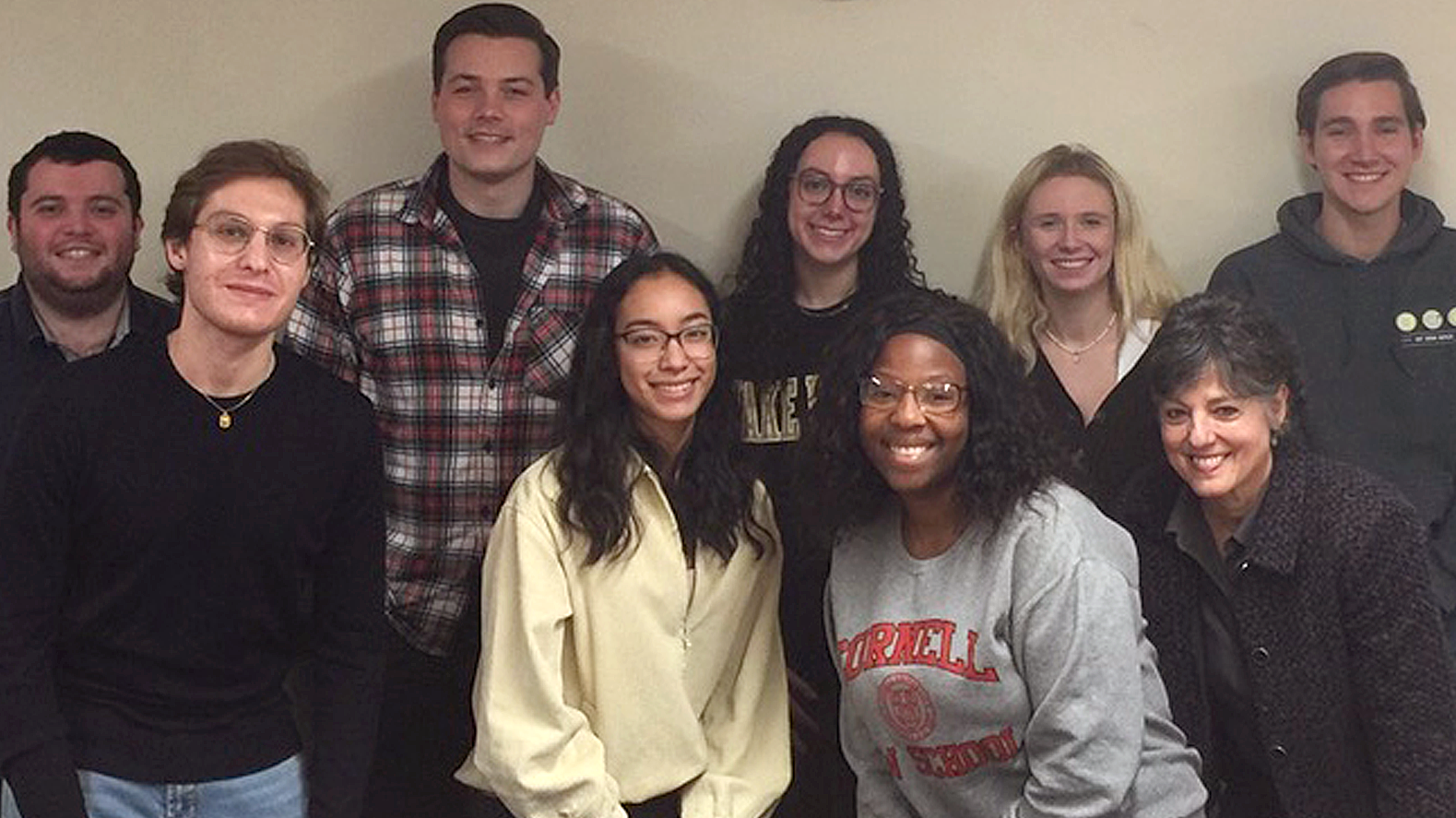This website uses cookies
We use cookies to ensure that we give you the best experience on our website. If you continue to use this site we will assume that you are happy with it.

Early in 2023, students in the Labor Law Clinic settled a case on behalf of their client following a semester of negotiation with opposing counsel in the fall of 2022. Per the settlement, the client received six months of combined back and front pay, including sales commissions. As part of the settlement, the employer also agreed to update the employee’s official record to state their departure was a resignation, not a termination.
The settlement reflects the work of clinic students Julia Doyle ’24, Jack Ligon ’24, and Lila Tabor ’24, who were supervised by Professor Angela Cornell, who directs the clinic.
Despite having an excellent performance record, the worker was terminated from a technology company after engaging in activities protected under the National Labor Relations Act (NLRA). Under the NLRA, all employees, even those who do not belong to a union, have the right to engage in “protected concerted activity.” An action, such as a complaint brought to management, is protected when it is raised by a group of workers and is aimed toward improving the terms and conditions of employment for all.
“I’m grateful for the Labor Law Clinic, not only for helping me during this difficult time, but also for how well they took care of me and the excellent student representation,” the client said.
After interviewing the client and gathering all the facts, Doyle, Ligon and Tabor filed an unfair labor practice claim with the National Labor Relations Board (NLRB). Following the Board charge filing, the students drafted a position statement arguing that their client was fired for engaging in protected concerted activity in violation of the NLRA. In the end, the case was resolved by private agreement between parties, with the students fully representing their client through a series of negotiations.
Cornell notes that when it seemed clear that the charge would advance to a complaint, the students were able to negotiate an excellent settlement for their client. “They went from start to finish with the case obtaining a great result,” she said, “learning a great deal about how to put a case together, collaborate, and effectively represent a client before a federal administrative agency.”
“It was gratifying to provide legal assistance for someone who otherwise may not have had access to representation,” said Doyle, reflecting on the experience. “I am honored to have had this opportunity.”
“Working alongside our Cornell peers to reach this outstanding settlement reminded us all why we chose to enroll in law school in the first place,” Tabor added. “From our first client meeting to signing the resolution, we all improved our competencies as future lawyers.”